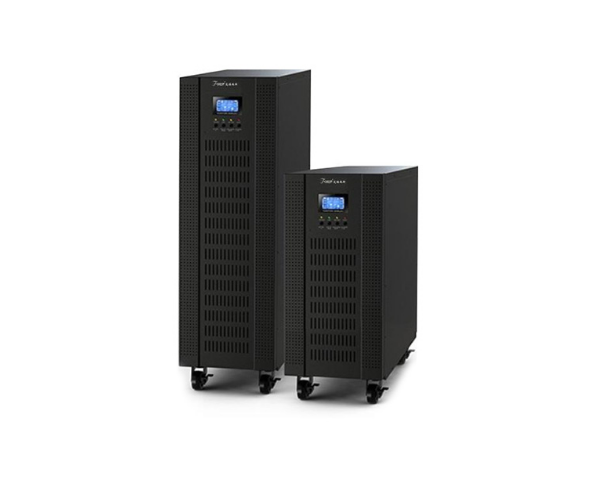language
In today’s interconnected world, the reliability of your power supply is more critical than ever. Whether you're running a home office, a small business, or a large data center, ensuring that your systems have constant, stable power is essential for keeping operations smooth and secure. Power disruptions, whether caused by outages, surges, or voltage dips, can lead to significant downtime, data loss, and even hardware damage. This is where a UPS for power supply (Uninterruptible Power Supply) becomes indispensable.
A UPS for power supply doesn’t just provide backup power; it also enhances the overall reliability of your system, offering protection and stability to critical equipment. In this article, we will explore how investing in a UPS can improve the reliability of your systems and ensure that your operations continue without interruption.
1. Provides Uninterrupted Power During Outages
One of the most obvious and important ways a UPS for power supply enhances system reliability is by offering backup power during electrical outages. Power failures can occur without warning, often due to storms, grid issues, or unforeseen technical problems. These interruptions can be disastrous for businesses, especially if they lead to unsaved work, halted transactions, or corrupted data.
A UPS ensures that your system will keep running seamlessly during a power outage, buying you precious time to either continue working or safely shut down equipment without risk of data loss or damage. This uninterrupted power provides the stability and reliability your system needs to avoid disruptions and continue operations without downtime.
Such as AF9300 series Online Transformerless UPS 3 phase input and 3 phase output has perfect detection and protection functions; small size, light weight, high working efficiency.

2. Protects Against Power Surges and Voltage Fluctuations
Power surges, sags, and fluctuations are common and often overlooked threats to system reliability. These irregularities can occur due to lightning strikes, faulty equipment, or electrical grid instability. Power surges can damage sensitive electronics, while voltage dips (also known as brownouts) can cause systems to malfunction, shut down unexpectedly, or even get permanently damaged.
A UPS for power supply actively protects your systems from these issues by filtering out fluctuations and providing stable, regulated power. With surge protection built into most UPS models, your equipment will be shielded from spikes in electricity that could otherwise compromise system reliability and cause costly repairs.
3. Maintains Stability in Power Supply Quality
Many businesses depend on highly sensitive equipment such as servers, workstations, and networking gear that require a steady, high-quality power supply. Even minor fluctuations in voltage can lead to system errors, data corruption, and hardware failures.
A UPS for power supply ensures that your devices receive constant, clean power by eliminating "power pollution" such as high-voltage spikes, low-voltage dips, or electromagnetic interference (EMI) that might disrupt operations. By stabilizing your power supply, a UPS helps to maintain system reliability, ensuring that your devices run optimally and without risk of damage.
4. Prevents Data Loss and System Corruption
Data is a crucial asset for any organization, and power disruptions are one of the leading causes of data corruption or loss. If a sudden power failure occurs during a critical process, such as a file transfer or system update, you could risk losing important files or even corrupting an entire system.
A UPS for power supply provides sufficient battery runtime to allow for graceful system shutdowns or file backups when power failure strikes. This feature is essential for safeguarding important data and ensuring that it is saved correctly, thus preventing data loss or corruption. The UPS provides a reliable bridge between the power cut and recovery efforts, ensuring that your work is preserved.
5. Reduces Equipment Downtime and Increases Productivity
Downtime is one of the most costly consequences of power disruptions. Whether you are running a small business, managing a server farm, or working from home, even a few minutes of downtime can lead to lost revenue, missed opportunities, and decreased productivity.
A UPS for power supply enhances system reliability by preventing unplanned shutdowns and enabling your equipment to remain operational even when external power is lost. This is especially valuable in environments where continuous uptime is critical, such as in customer-facing services, e-commerce, or any business that requires 24/7 access to systems. By ensuring that your systems are always running, a UPS helps you maintain productivity and avoid the disruptions caused by power issues.
6. Easy Integration and Scalability
Another key benefit of a UPS for power supply is its ability to integrate easily into your existing infrastructure. UPS systems are available in a wide range of capacities, from small units that protect home offices to large, industrial-scale solutions that support entire data centers. This scalability means that you can choose the appropriate UPS system for your current needs while also allowing for future growth.
Moreover, modern UPS units often come with remote monitoring and management capabilities, making it easy to track performance, battery health, and other vital system parameters. This ease of use and scalability ensures that your UPS is both an immediate and long-term solution to enhancing system reliability, no matter how your needs evolve.

7. Improved Efficiency and Power Management
Many UPS systems offer features like automatic voltage regulation (AVR), which helps optimize power efficiency by adjusting voltage levels to prevent overuse of the battery and extending the life of the system. By regulating and stabilizing power delivery, UPS systems help reduce wear on your equipment, making them run more efficiently.
Additionally, UPS systems can help you monitor and manage your power usage more effectively, which can be particularly beneficial for businesses looking to reduce their energy costs. By providing a reliable power supply, a UPS ensures that your systems operate smoothly without wasting energy on compensating for unstable power, thus improving the overall energy efficiency of your operations.
A UPS for power supply is an essential tool for enhancing the reliability of your systems, whether you're operating a home office, a small business, or a large enterprise. By providing uninterrupted power, stabilizing voltage, protecting against surges, and preventing data loss, a UPS ensures that your operations continue without disruption.